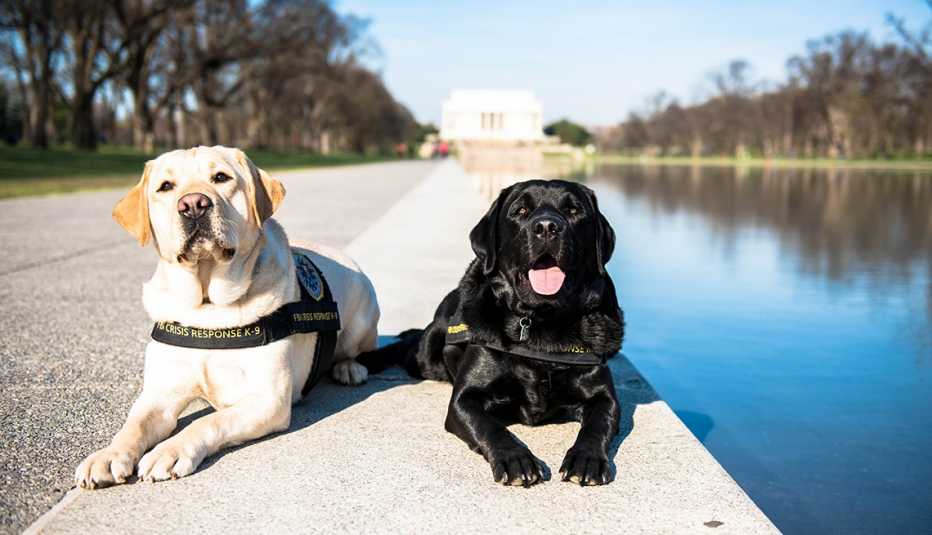AARP Hearing Center


Who knew the FBI has a pair of 6-year-olds on call?
Wally and Gio are furry, four-legged creatures who jump into duty once outfitted in their FBI K-9 vests. The crisis-response canines have soothed victims and witnesses at crime scenes — including the San Bernardino, California, terror attacks in 2015; the Pulse nightclub shootings in Orlando, Florida in 2016; and the Las Vegas music festival shootings in 2017.
Both male English Labradors, the pair are the bureau's first and only crisis-response dogs. On board since 2015, the Labs work to soothe victims physically or emotionally wounded at mass casualties and give comfort to the families of the dead. The pooches also befriend FBI agents, evidence technicians and other first responders, giving them moments of down time during long hours probing crimes and taking statements from witnesses.
Different personalities
Gio is black. Wally is yellow. Born six months apart, the animals’ personalities are as different as night and day, their handlers say.
Wally, who is younger, was born on May 5, which is Cinco de Mayo, and he is an extroverted party animal who never tires of fetching tennis balls.
Gio is the mellower of the two. “Your little cuddle bunny,” says Melody Tiddle, an FBI analyst and the dog's handler. “You may get a few ball tosses out of him, but other than that, he just kind of wants to sit under you while you're petting him."


When not at crime scenes, the dogs pad around FBI headquarters in Washington and train in its private courtyard. Off duty, they live with their handlers, Tiddle and Staci Beers, and come across as family pets — that is, if your pet grew up learning to obey 90 non-negotiable commands. Beers is also the FBI's Victim Services coordinator.
What's in a name?
Gio is short for Giovanni, the given name of St. Francis of Assisi, the Italian Catholic friar and patron saint of animals. The name was chosen because Gio was born on Oct. 4, the saint's feast day.



































































More From AARP
7 Ways a Dog Can Be Good for You
Furry friends contribute to our health and happiness in so many waysHow to Prevent and Control a Panic Attack
It can be scary when your anxiety suddenly gets the best of you6 Ways to Calm Your Anxiety
These methods will help you relax when you're feeling stressed